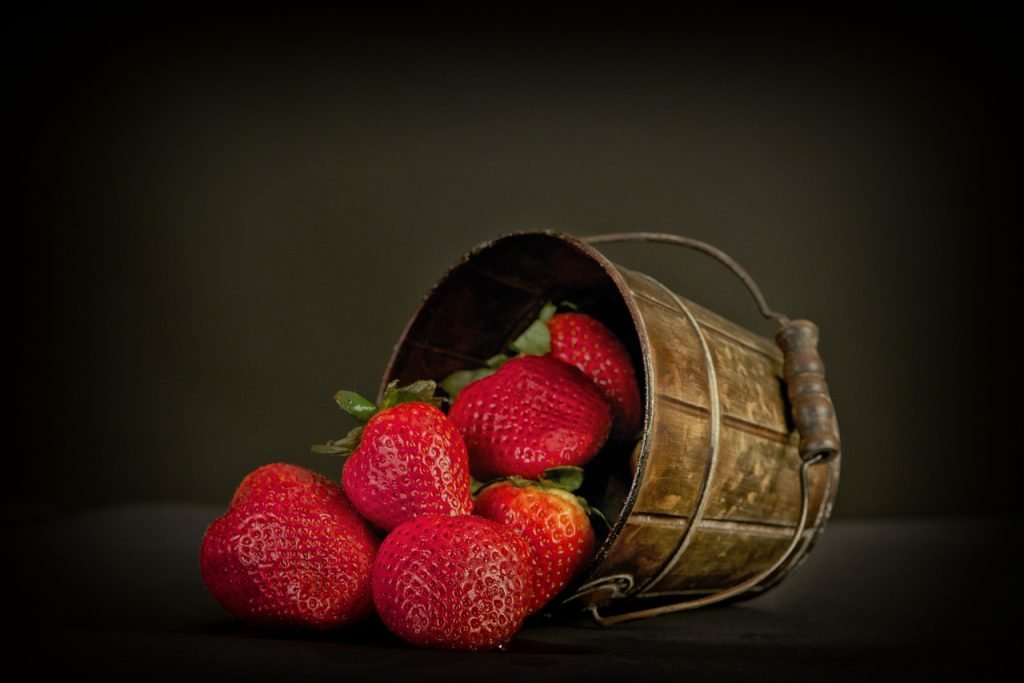The application of chitosan oligosaccharide in strawberry cultivation covers various aspects. Throughout the entire growth cycle, starting from seedling cultivation, strawberries are prone to various common diseases such as powdery mildew, root rot, anthracnose, gray mold, leaf spot, as well as potential infestations of pests like red spider mites and thrips. The occurrence of diseases and pests is often closely related to inadequate temperature and humidity management within the greenhouse.
Effective management is crucial for strawberry cultivation, irrespective of the grower’s experience. Even seasoned growers may encounter issues such as weak plant growth, sparse fruiting, and limited flower bud differentiation, as observed in a visit to a base with over a decade of cultivation experience. While issues related to water and nutrient deficiencies can be addressed through scientific irrigation and nutrient supplementation, bacterial or fungal diseases, once established, can lead to irreparable losses. Therefore, enhancing the crop’s immunity and proactively preventing bacterial or fungal infections become particularly important.


Application of Chitosan Oligosaccharide in Strawberries:
Chitosan oligosaccharide, also known as amino-chitooligosaccharide, is a low-polymer chitosan with a degree of polymerization lower than 20, obtained through enzymatic hydrolysis. Research indicates that during the growth stages of strawberries, using chitosan oligosaccharide in liquid form through foliar spraying or drip irrigation enhances the overall growth vigor of strawberries and exhibits good preventive effects against common diseases such as powdery mildew, gray mold, and root rot.
- Enhancing Crop Disease Resistance: Treating plants with chitosan oligosaccharide before they succumb to diseases can boost their immune response. Treated plants show a higher level of defense when subsequently attacked by pests or diseases. While chitosan oligosaccharide cannot directly deactivate viruses, it significantly inhibits virus replication and long-distance movement within the plant. This control mechanism helps enhance the host’s sensitivity to infection, effectively managing viral diseases.
- Boosting Crop Stress Resistance: Unusual temperature fluctuations, such as a rapid drop from 20°C to -6 to -10°C, can cause irreversible damage to strawberry growth. Conditions like frost or cold damage lead to weak seedlings, wilting leaves, flower and fruit drop, and deformed fruit. Chitosan oligosaccharide, by increasing the content of cold-resistant substances like soluble proteins and sugars, mitigates membrane lipid peroxidation, maintaining higher photosynthetic intensity and protecting crops from the adverse effects of low temperatures.
- Stimulating Rooting and Promoting Growth: Absorbed by plants, chitosan oligosaccharide induces the production of growth hormone-like substances such as indole-3-acetic acid and gibberellin. This synthesis activates plant cells and stimulates root development. Experimental evidence suggests that chitosan oligosaccharide can repair damaged root systems and promote root growth.
Due to its multifunctional properties, continuous application of chitosan oligosaccharide and its derivatives or downstream formulated products throughout the entire growth stages of strawberries demonstrates positive effects on disease resistance, stress resistance, and cold resistance, as well as reducing the need for agrochemicals and improving product quality.
Additionally, leveraging the disease-resistant properties of chitosan oligosaccharide opens up possibilities for its application as a preservative. There is also substantial literature available on this aspect.
In conclusion, while chitosan oligosaccharide has diverse applications, its adoption in agriculture has been limited due to cost considerations. However, with the significant reduction in raw material costs in recent years, the number of companies developing formulations around amino-chitooligosaccharides is rapidly increasing. It is anticipated that terminal applications will flourish in the coming years.
Zhengzhou Delong Chemical CO., Ltd. is the production base of plant growth regulators in China, which was established in 2009, specializing in offering plant protection products. If you have any questions, contact us any time.
